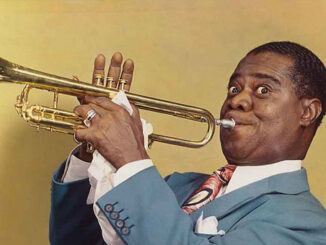
By Oba Lorrius
On Saturday April 20th, 2018 The Orpheum Theater hosted an almost sold out ecstatic audience for the VOICES OF CONGO SQUARE.
Written, Directed, and Produced by Naimah and Shaka Zulu, this groundbreaking stage production brought to life Black History as it relates to New Orleans; thoroughly empowering, educating, and entertaining every attendee.
Producer/Artistic Director Naimah Zulu said, “The Voices of Congo Square is the dedication to Afro-New Orleans Culture,” Congo Square is an historic site in New Orleans on the National Registry of Historic Places. New Orleans natives and the transatlantic African diaspora who met in Congo Square did not speak the same language verbally, but the two things they had in common were their traditions of drumming and dancing, and that’s the language they used to communicate. Voices of Congo Square presents the language of a people.
After the show we had a chance to interview Jude Evans, a New Orleans native who gracefully executed every thoughtful movement playing the role of Jean-Jacques Dessalines in the Haitian Revolution scene.
Q. What is your dance background?
A. I started off in church and got my first official lessons from Kelly School of Dance around sixteen. By then I was getting ready to go to college on a music scholarship. I came back home and went to Delgado and went back to Kelly’s. I booked my first two dancing jobs, but they were interrupted by Hurricane Katrina. After that I moved to Houston and took classes at the Houston Met. until I joined Urban Souls Dance Theater and learned a lot of my technique. In three years I went from being accepted into the 2007 Alvin Ailey Summer Program to getting into one of the most prestigious programs in the school. I knew that I’m starting late so I must work that much harder. Since moving to N.Y. full time I’ve danced with Balance Dance Theater, Footprints, Alpha & Omega Theatrical Dance Theater, and Forces of Nature Dance Theater where I have been now for 5 seasons.
Q. What scene/role most connected you with the audience, why?
A. The last two scenes, The Black Indian and Second-Line Dance. Being from New Orleans my family has a strong direct connection to the Black Indians and Social Aid & Pleasure Clubs. Through this production I actually found out that my maternal grandmothers oldest brother was a Black Masking Indian. Based on where they lived my guess is He was an uptown Indian. Aside from that family connection there was a moment when the Black Indians were coming from the back of the house onto the stage and everyone in the wings, all the musicians were playing and chanting. Suddenly it went from just the musicians doing the chant to everyone backstage that was from New Orleans started chanting and dancing. This was before the proper ballet started, this was just presenting the Black Indians. There was a moment right before the choreographed piece started and you heard someone in the audience continuing the lead of the chants and all of us backstage and in the entire audience kept singing. One of the choreographers back stage she looked at me and said, “This is your home. Don’t ever forget this, don’t sell it, don’t let nobody tell you anything different, this is your home, this is your people, this is where you come from, this is you!” In that moment the fourth wall was broken, and it was no longer a performance.
Producer/Musical Director Chief Shaka Zulu said, “Preservation is Salvation.” The rich culture in New Orleans is the root and fountain of that salvation for Americans of color. Every storyline, choreographed ballet, and drum hit was on time and intentional.
The Voices of Congo Square culminated in a roaring dancing Nola style second-line ovation. Everyone from child to elder danced all the way out the theater onto the street. Inspiration lived in the words of excited attendees exchanging stories of their experience watching the Voices of Congo Square. In one night on one stage we learned centuries of history without a word being spoken. Actions speak louder than words and truly there are no words to describe the out of body historical experience that is the Voices of Congo Square.
Recommended For You.






Be the first to comment